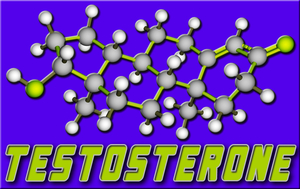Introduction
Testosterone Cypionate, a widely used form of testosterone replacement therapy (TRT), has been a subject of interest among American males seeking to address hypogonadism and its associated symptoms. While TRT is known for its benefits in improving muscle mass, bone density, and libido, its effects on sleep disorders, particularly sleep apnea, have sparked significant concern and debate. This article delves into the relationship between Testosterone Cypionate and sleep apnea severity in American men, drawing on polysomnographic data and clinical assessments to provide a clearer understanding of this complex interplay.
Understanding Sleep Apnea and Testosterone Cypionate
Sleep apnea is a prevalent sleep disorder characterized by repeated interruptions in breathing during sleep, leading to fragmented sleep and potential health complications such as hypertension, cardiovascular disease, and stroke. Testosterone Cypionate, administered to counteract low testosterone levels, has been hypothesized to influence the severity of sleep apnea due to its potential effects on upper airway muscle tone and fat distribution.
Polysomnographic Evidence: The Link Between Testosterone and Sleep Apnea
Polysomnographic studies, which involve overnight monitoring of sleep patterns and breathing, have been instrumental in assessing the impact of Testosterone Cypionate on sleep apnea. Research indicates that testosterone therapy may exacerbate sleep apnea in some individuals, possibly by promoting weight gain and increasing neck circumference, which can obstruct the upper airway. However, not all studies align on this point, with some suggesting that testosterone may improve sleep quality by enhancing muscle tone in the upper airway.
Clinical Observations: Variability in Patient Responses
Clinical assessments of American males undergoing Testosterone Cypionate therapy reveal a spectrum of responses regarding sleep apnea severity. Some patients report an increase in apnea-hypopnea index (AHI), a measure of sleep apnea severity, following the initiation of TRT. Conversely, others experience no change or even a slight improvement in their sleep apnea symptoms. This variability underscores the need for personalized approaches to TRT, taking into account individual health profiles and sleep apnea risk factors.
Navigating the Risks and Benefits of Testosterone Cypionate
For American males considering or currently undergoing Testosterone Cypionate therapy, it is crucial to weigh the potential benefits against the risks, particularly in the context of sleep apnea. Regular monitoring through polysomnography and clinical evaluations can help identify changes in sleep apnea severity and guide adjustments to TRT regimens. Additionally, lifestyle modifications, such as weight management and avoiding alcohol and sedatives, can play a significant role in mitigating sleep apnea symptoms.
Future Directions in Research and Treatment
The relationship between Testosterone Cypionate and sleep apnea remains an area ripe for further investigation. Future research should focus on identifying biomarkers that predict an individual's response to TRT in terms of sleep apnea severity. Moreover, exploring alternative formulations of testosterone or adjunctive therapies that minimize the risk of worsening sleep apnea could provide safer treatment options for American males with hypogonadism.
Conclusion
In conclusion, the impact of Testosterone Cypionate on sleep apnea severity in American males is a multifaceted issue that requires careful consideration. While some evidence suggests a potential for increased sleep apnea severity with TRT, individual responses can vary widely. As such, a tailored approach to testosterone therapy, supported by ongoing polysomnographic and clinical assessments, is essential for optimizing outcomes in men with hypogonadism and sleep apnea. By staying informed and proactive, American males can navigate the complexities of TRT and sleep apnea with greater confidence and safety.
Contact Us Today For A Free Consultation

- Testosterone Cypionate: Benefits, Risks, and Management for Aging American Men [Last Updated On: March 12th, 2025] [Originally Added On: March 12th, 2025]
- Testosterone Cypionate: Benefits, Risks, and Long-Term Health Impacts on American Men [Last Updated On: March 17th, 2025] [Originally Added On: March 17th, 2025]
- Testosterone Cypionate: Overcoming Stigma and Enhancing Men's Health in America [Last Updated On: March 17th, 2025] [Originally Added On: March 17th, 2025]
- Testosterone Cypionate Enhances Sleep Quality in American Males Undergoing TRT [Last Updated On: March 18th, 2025] [Originally Added On: March 18th, 2025]
- Testosterone Cypionate: Benefits, Risks, and Prostate Health Management in American Men [Last Updated On: March 18th, 2025] [Originally Added On: March 18th, 2025]
- Navigating Insurance Coverage for Testosterone Cypionate Therapy: A Guide for American Males [Last Updated On: March 19th, 2025] [Originally Added On: March 19th, 2025]
- Minimizing Side Effects of Testosterone Cypionate: A Holistic Approach for American Men [Last Updated On: March 19th, 2025] [Originally Added On: March 19th, 2025]
- Testosterone Cypionate Therapy: Costs, Insurance, and Financial Planning for American Men [Last Updated On: March 19th, 2025] [Originally Added On: March 19th, 2025]
- Testosterone Cypionate: Managing Chronic Conditions in American Men [Last Updated On: March 20th, 2025] [Originally Added On: March 20th, 2025]
- Testosterone Cypionate's Impact on Mental Clarity in American Men: Experiences and Insights [Last Updated On: March 20th, 2025] [Originally Added On: March 20th, 2025]
- Testosterone Cypionate Injection Guide for American Males: Safe Administration and Care [Last Updated On: March 20th, 2025] [Originally Added On: March 20th, 2025]
- Testosterone Cypionate: Enhancing Libido in American Males - Benefits and Considerations [Last Updated On: March 21st, 2025] [Originally Added On: March 21st, 2025]
- Testosterone Cypionate's Role in Weight Management for American Men: Benefits and Risks [Last Updated On: March 22nd, 2025] [Originally Added On: March 22nd, 2025]
- Testosterone Cypionate: Dispelling Myths and Providing Facts for Informed Use [Last Updated On: March 22nd, 2025] [Originally Added On: March 22nd, 2025]
- Testosterone Cypionate's Impact on Joint Health in American Men: Benefits and Risks [Last Updated On: March 22nd, 2025] [Originally Added On: March 22nd, 2025]
- Testosterone Cypionate and Hair Loss: Mechanisms, Studies, and Management Strategies [Last Updated On: March 23rd, 2025] [Originally Added On: March 23rd, 2025]
- Testosterone Cypionate's Impact on Cholesterol Levels in American Males: A Comprehensive Review [Last Updated On: March 23rd, 2025] [Originally Added On: March 23rd, 2025]
- Testosterone Cypionate Guide: Benefits, Risks, and Safe Usage for American Men [Last Updated On: March 24th, 2025] [Originally Added On: March 24th, 2025]
- Testosterone Cypionate: Essential Hormone Therapy for Transgender Men's Gender Affirmation [Last Updated On: March 24th, 2025] [Originally Added On: March 24th, 2025]
- Testosterone Cypionate's Cardiovascular Impact on American Men: Benefits and Risks [Last Updated On: March 24th, 2025] [Originally Added On: March 24th, 2025]
- Testosterone Cypionate: Enhancing Body Composition in American Men - Benefits and Risks [Last Updated On: March 24th, 2025] [Originally Added On: March 24th, 2025]
- Testosterone Cypionate: Enhancing Energy in American Men with Low Testosterone [Last Updated On: March 24th, 2025] [Originally Added On: March 24th, 2025]
- Testosterone Cypionate: A Promising Aid in Managing Diabetes in American Males [Last Updated On: March 24th, 2025] [Originally Added On: March 24th, 2025]
- Testosterone Cypionate: Safety, Benefits, and Monitoring for American Males [Last Updated On: March 24th, 2025] [Originally Added On: March 24th, 2025]
- Testosterone Cypionate's Impact on Liver Function in American Males: Risks and Monitoring [Last Updated On: March 24th, 2025] [Originally Added On: March 24th, 2025]
- Testosterone Cypionate's Impact on Digestive Health in American Men: A Comprehensive Analysis [Last Updated On: March 25th, 2025] [Originally Added On: March 25th, 2025]
- Testosterone Cypionate: A Novel Approach to Managing Allergies in American Males [Last Updated On: March 25th, 2025] [Originally Added On: March 25th, 2025]
- Testosterone Cypionate's Impact on Cognitive Function in American Men: A Comprehensive Overview [Last Updated On: March 25th, 2025] [Originally Added On: March 25th, 2025]
- Testosterone Cypionate: Effects on Skin Health and Management Strategies for American Men [Last Updated On: March 25th, 2025] [Originally Added On: March 25th, 2025]
- Testosterone Cypionate's Impact on Kidney Function in American Men: Risks and Monitoring [Last Updated On: March 25th, 2025] [Originally Added On: March 25th, 2025]
- Testosterone Cypionate's Impact on Blood Pressure in American Men: A Comprehensive Analysis [Last Updated On: March 25th, 2025] [Originally Added On: March 25th, 2025]
- Testosterone Cypionate's Impact on Red Blood Cell Production in American Men [Last Updated On: March 25th, 2025] [Originally Added On: March 25th, 2025]
- Testosterone Cypionate Therapy: Monitoring and Optimizing Levels in American Men [Last Updated On: March 25th, 2025] [Originally Added On: March 25th, 2025]
- Testosterone Cypionate's Impact on Emotional Well-being in American Males: Benefits and Risks [Last Updated On: March 25th, 2025] [Originally Added On: March 25th, 2025]
- Testosterone Cypionate: Legal Status and Compliance for American Males [Last Updated On: March 25th, 2025] [Originally Added On: March 25th, 2025]
- Testosterone Cypionate: A Promising Treatment for Chronic Fatigue in American Males [Last Updated On: March 26th, 2025] [Originally Added On: March 26th, 2025]
- Testosterone Cypionate: A Promising Treatment for Osteoporosis in Aging American Males [Last Updated On: March 26th, 2025] [Originally Added On: March 26th, 2025]
- Testosterone Cypionate's Impact on Vision Health: Benefits and Risks for American Males [Last Updated On: March 26th, 2025] [Originally Added On: March 26th, 2025]
- Testosterone Cypionate's Impact on Thyroid Function in American Males: A Review [Last Updated On: March 26th, 2025] [Originally Added On: March 26th, 2025]
- Testosterone Cypionate's Impact on Mental Health in American Men: Benefits and Risks [Last Updated On: March 26th, 2025] [Originally Added On: March 26th, 2025]
- Testosterone Cypionate: A Promising Treatment for Depression in American Males [Last Updated On: March 26th, 2025] [Originally Added On: March 26th, 2025]
- Testosterone Cypionate: Enhancing Injury Recovery in American Males [Last Updated On: March 27th, 2025] [Originally Added On: March 27th, 2025]
- Testosterone Cypionate's Impact on Immune Function in American Males Undergoing TRT [Last Updated On: March 27th, 2025] [Originally Added On: March 27th, 2025]
- Testosterone Cypionate and Male Pattern Baldness: Risks and Management for American Men [Last Updated On: March 28th, 2025] [Originally Added On: March 28th, 2025]
- Testosterone Cypionate's Impact on Lung Function in American Men: Benefits and Risks [Last Updated On: March 28th, 2025] [Originally Added On: March 28th, 2025]
- Testosterone Cypionate's Impact on Eye Health in American Men: Risks and Benefits [Last Updated On: March 28th, 2025] [Originally Added On: March 28th, 2025]
- Testosterone Cypionate's Impact on Hearing in American Men: A Comprehensive Study [Last Updated On: March 28th, 2025] [Originally Added On: March 28th, 2025]
- Testosterone Cypionate's Impact on Dental Health in American Men: A Comprehensive Analysis [Last Updated On: March 29th, 2025] [Originally Added On: March 29th, 2025]
- Testosterone Cypionate: A Promising Treatment for Autoimmune Disorders in American Men [Last Updated On: March 29th, 2025] [Originally Added On: March 29th, 2025]
- Testosterone Cypionate: Exploring Its Dermatological Benefits for American Males [Last Updated On: March 29th, 2025] [Originally Added On: March 29th, 2025]
- Testosterone Cypionate's Impact on American Men's Nervous System: Benefits and Risks [Last Updated On: March 31st, 2025] [Originally Added On: March 31st, 2025]
- Testosterone Cypionate: A Promising Pain Management Solution for American Males [Last Updated On: March 31st, 2025] [Originally Added On: March 31st, 2025]
- Testosterone Cypionate: A Promising Therapy for Respiratory Health in American Men [Last Updated On: March 31st, 2025] [Originally Added On: March 31st, 2025]
- Testosterone Cypionate's Impact on American Men's Urinary Health: Risks and Management [Last Updated On: April 1st, 2025] [Originally Added On: April 1st, 2025]
- Testosterone Cypionate's Impact on U.S. Male Reproductive Health: Risks and Management [Last Updated On: April 3rd, 2025] [Originally Added On: April 3rd, 2025]
- Testosterone Cypionate: Effects on Endocrine System and Long-term Management in American Men [Last Updated On: April 5th, 2025] [Originally Added On: April 5th, 2025]
- Testosterone Cypionate: Managing Musculoskeletal Disorders in American Males [Last Updated On: April 5th, 2025] [Originally Added On: April 5th, 2025]
- Testosterone Cypionate: A Promising Treatment for Metabolic Disorders in American Males [Last Updated On: April 6th, 2025] [Originally Added On: April 6th, 2025]
- Testosterone Cypionate's Impact on Immune System in American Men: Risks and Benefits [Last Updated On: April 7th, 2025] [Originally Added On: April 7th, 2025]
- Testosterone Cypionate's Impact on Cardiovascular Health in American Men: A Comprehensive Review [Last Updated On: April 8th, 2025] [Originally Added On: April 8th, 2025]
- Testosterone Cypionate's Impact on Respiratory Health in American Men: Benefits and Risks [Last Updated On: April 9th, 2025] [Originally Added On: April 9th, 2025]
- Testosterone Cypionate's Impact on Kidney Function in American Men: Risks and Mitigation [Last Updated On: April 9th, 2025] [Originally Added On: April 9th, 2025]
- Testosterone Cypionate: Potential Benefits for Neurological Disorders in American Males [Last Updated On: April 9th, 2025] [Originally Added On: April 9th, 2025]
- Testosterone Cypionate's Impact on Gastrointestinal Health in American Males: Benefits and Risks [Last Updated On: April 9th, 2025] [Originally Added On: April 9th, 2025]
- Testosterone Cypionate: Dermatological Impacts and Management in American Men [Last Updated On: April 10th, 2025] [Originally Added On: April 10th, 2025]
- Testosterone Cypionate: A Promising Treatment for Hematological Disorders in American Males [Last Updated On: April 11th, 2025] [Originally Added On: April 11th, 2025]
- Testosterone Cypionate's Effects on American Men's Genitourinary System: Benefits and Risks [Last Updated On: April 12th, 2025] [Originally Added On: April 12th, 2025]
- Testosterone Cypionate: Enhancing Muscle, Bone, and Joint Health in American Males [Last Updated On: April 15th, 2025] [Originally Added On: April 15th, 2025]
- Testosterone Cypionate: Exploring Dermatological Benefits and Safety in American Males [Last Updated On: April 15th, 2025] [Originally Added On: April 15th, 2025]
- Testosterone Cypionate: A Promising Therapy for Respiratory Disorders in American Males [Last Updated On: April 15th, 2025] [Originally Added On: April 15th, 2025]
- Testosterone Cypionate's Hematological Impact on American Men: Risks and Management [Last Updated On: April 16th, 2025] [Originally Added On: April 16th, 2025]
- Testosterone Cypionate: Potential Benefits in Managing Renal Disorders in American Males [Last Updated On: April 17th, 2025] [Originally Added On: April 17th, 2025]
- Testosterone Cypionate's Impact on Gastrointestinal Health in American Men [Last Updated On: April 17th, 2025] [Originally Added On: April 17th, 2025]
- Testosterone Cypionate: Impacts on American Males' Endocrine System and Health Management [Last Updated On: April 17th, 2025] [Originally Added On: April 17th, 2025]
- Testosterone Cypionate: Managing Endocrine Disorders in American Males [Last Updated On: April 18th, 2025] [Originally Added On: April 18th, 2025]
- Testosterone Cypionate: Psychiatric Benefits and Risks for American Men [Last Updated On: April 18th, 2025] [Originally Added On: April 18th, 2025]
- Testosterone Cypionate: Neurological Impacts and Considerations for American Men [Last Updated On: April 19th, 2025] [Originally Added On: April 19th, 2025]
- Testosterone Cypionate's Psychiatric Impact on American Men: Benefits and Risks [Last Updated On: April 20th, 2025] [Originally Added On: April 20th, 2025]
- Testosterone Cypionate's Long-Term Effects on Prostate Health in American Males: A Prospective Study [Last Updated On: April 22nd, 2025] [Originally Added On: April 22nd, 2025]
- Testosterone Cypionate: Benefits, Risks, and Usage for American Males [Last Updated On: April 22nd, 2025] [Originally Added On: April 22nd, 2025]
Word Count: 558




















